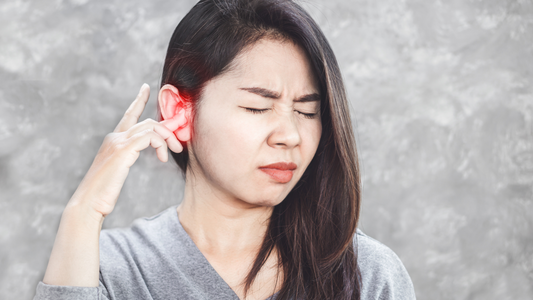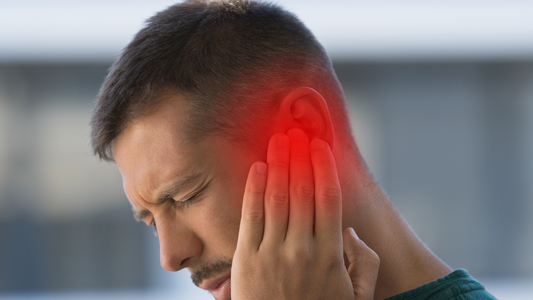Struggling with neck pain after a fender-bender or a day out at the amusements? You're not alone. This might be more significant than just a simple ache. You're driving, minding your own business, and out of nowhere - a sudden jolt from behind. It's more than just a shock to the system; your neck really takes a hit. Familiar tale, isn't it?
This is your go-to spot for a down-to-earth discussion on that neck bother known as whiplash. It sneaks up on you, even from events as innocent as a drive around town or cheering at a local soccer match. But here's the scoop: we're going to tackle what happens to your neck, expose the real reasons behind that soreness, and talk about some effective ways to handle it. Stay with us as we lay out the straightforward facts on this common yet misunderstood condition.
Understanding Whiplash Causes
So, you're driving along and out of the blue, you're rear-ended. That snap of the head back and forth is how most folks end up with whiplash. It's not just car mishaps either. Watch some football and you'll likely see a player take a hard hit. It all takes just a split second, but it's enough to leave you with a real pain in the neck.
Leading Contributors to Whiplash
- Rear-end Collisions: Speed isn't always the issue. It's about how your head gets thrown around. Even tapping another car's bumper can do a number on your neck—minus the thrills of a theme park.
- Getting Sideswiped on the Field: In sports, it's not just the big tackles. Any quick hit that sends your head in directions it's not meant to go can have you feeling sore, and not like after a good workout.
- Unexpected Jolts from Fun Activities: Surprisingly, even activities that are all about fun can lead to trouble. Bungee jumping and the latest thrill rides can shake up your neck in ways you didn't plan for, and it's not just the adrenaline aftertaste we're talking about.
How Whiplash Occurs
You're at a stoplight, quietly waiting for it to switch when suddenly—another car smashes into you from behind. You're buckled in tight, but your head? Not so much. It gets thrown forward and then snaps back hard. No laughs here, folks; this isn't some joy ride. This jarring motion on your neck can happen in a flash and doesn't even require a high-speed impact to wreak havoc.
The Mechanics Behind the Snap
Let's look under the hood of what happens with whiplash. Your head rockets forward and your neck stretches. Then it comes snapping back, compressing your neck this time. Think of it like a rubber band being stretched and released—that's your neck we're talking about. It's certainly not designed to handle that kind of stress. This rapid whipping motion can really do a number on your neck's muscles and ligaments, pushing them beyond their comfort zone. And when these parts of your neck go beyond their limits, believe me, you're going to feel it.
Whiplash Symptoms
When that unexpected impact hits, you might start feeling off. If you're questioning what to watch for, let's dig into that. Your neck could stiffen up on you, and trying to look over your shoulder might suddenly feel like a major effort. Your body's giving you a heads-up to slow down and take care.
Common Signs Your Neck is Bearing the Brunt
- Pains and Aches: Even though your neck is the epicenter, the ache can spread to your head. It's similar to the headache you get after a rough car ride, beginning at the skull base and catching you off-guard.
- Feeling Like a Statue: When turning your head is as hard as pushing through heavy sludge, it's a sign your neck's not too happy. It's akin to the stiffness when you wake up from an awkward sleeping position—only you weren't asleep.
- More than Just Neck Trouble: The woes don't end with your neck. Your arms and shoulders might join in, feeling like those creaky door hinges whenever you go for an embrace.
- Dizzy Episodes: That bump to the head was no illusion, but you might find yourself feeling like the room's on a spin cycle. Definitely not the fun sort of dizziness you were looking for.
Recognizing the Need for Help
Those symptoms are your body ringing the alarm bell. If your arms start feeling like they're not part of the team anymore, or if that headache morphs into a pounding affair, it's time to seek some assistance. Think of it like a smoke alarm; you don't ignore it—you take action. If your body's waving red flags, you tune in and consult a healthcare provider. Prompt attention to these signs can be crucial to your recovery and returning to your usual pace.
Understanding the Duration of Tinnitus Post-Whiplash

A quiet day goes sideways with a car bump from behind, and the next thing you know, your ears are ringing. That's tinnitus for you – a steady sound in your ears without any real source. The big question folks have is, how long does this stick around? Well, it's not the same for everyone. For some, that ringing fades after a couple of weeks. Others might have to deal with it longer.
Gauging the Timeline for Tinnitus
Let's say tinnitus is like an unexpected visitor. For a few, it's just a brief, albeit overwhelming, disruption. But for others, it's like that friend who crashes on your couch and won't leave, turning days into endless months. It depends on a few things – how bad the whiplash was, your overall health, and how quickly you got to the doctor. Think of seeing a doctor as you would that 'check engine' light; you want to get on top of trouble before it gets worse.
What Influences the Persistence of Tinnitus?
Turning tinnitus off isn't straightforward. The whiplash severity, your age, health, and how quickly you seek help all play a part in how long that unwanted sound sticks around. Younger folks might bounce back quicker, but if you've got a few more years on you, or if your ears are already giving you grief, you might have a harder time showing tinnitus the door. And while many people do see improvement, for some it might look like that noise decided it's here to stay.
Understanding the Duration of Tinnitus Post-Whiplash
A day's peace can turn on a dime when you're blindsided by a shunt to your car's rear. Suddenly, there's a ringing in your ears that wasn't on your to-do list. That's tinnitus, an unsolicited guest in your auditory canals. It's a common companion of whiplash, but how long it decides to stick around is a pretty individual thing. Some folks might hear the last of it within weeks. For others, it's a more drawn-out affair.
Gauging the Timeline for Tinnitus
Consider tinnitus a bit like an unwelcome houseguest. For some lucky ones, it's a short-lived annoyance. Others, not so lucky, find themselves with a couch-surfer hanging around for what feels like eternity. The duration relies on a few factors: the extent of the whiplash, your body's resilience, and how swiftly you've reached out for medical counsel. Like paying heed to your car's 'check engine' light, the sooner you address the signs, the better your chances of avoiding more significant issues.
What Influences the Persistence of Tinnitus?
Shutting off the persistent tinnitus isn't usually a straight path. Things like the severity of your whiplash, your age bracket, overall health, and the speed of getting medical advice all take roles. Recovery might be swifter for the younger crowd, but age and an existing bit of ear trouble could mean a longer haul. While progress is the norm, there's a chance for some that tinnitus might settle in for a long haul.
Wrapping Up Whiplash Wisdom
Time to wrap up our talk on whiplash. That neck ache after a run-in on the road or a rough play in a ball game? It could be whiplash and it's no small matter. Good thing you’ve got some know-how now: quick neck snaps from sudden moves are always a bad match for tender neck muscles. These jerks can tug your neck like it’s on a bungee cord, and, let's be honest, that hurts.
Then there's the ringing in your ears, that tinnitus. It's like a bell constantly ringing that you never asked to hear. Remember, the time it lingers can vary. Some folks shake it off in no time, while others have to ride it out a bit longer. Just pay mind to what your body’s signaling to you, heed its needs, and take care of yourself. Stay aware and sharp, and you'll steer clear of the worst when it comes to whiplash.
Sources & References
- Holm, L. W., Carroll, L. J., Cassidy, J. D., Hogg-Johnson, S., Côté, P., Guzman, J., ... & Haldeman, S. (2008). The burden and determinants of neck pain in whiplash-associated disorders after traffic collisions: results of the Bone and Joint Decade 2000–2010 Task Force on Neck Pain and Its Associated Disorders. Spine, 33(4S), S52-S59. https://journals.lww.com/spinejournal/Fulltext/2008/02151/The_Burden_and_Determinants_of_Neck_Pain_in.8.aspx
- Sterling, M. (2014). Physiotherapy management of whiplash-associated disorders (WAD). Journal of Physiotherapy, 60(1), 5-12. https://www.sciencedirect.com/science/article/pii/S1836955314000058
- Jull, G., Kenardy, J., Hendrikz, J., Cohen, M., & Sterling, M. (2013). Management of acute whiplash: a randomized controlled trial of multidisciplinary stratified treatments. PAIN®, 154(9), 1798-1806. https://journals.lww.com/pain/Abstract/2013/09000/Management_of_acute_whiplash__a_randomized.25.aspx
- Pastakia, K., & Kumar, S. (2011). Acute whiplash associated disorders (WAD). Open Access Emergency Medicine, 3, 29-32. https://www.ncbi.nlm.nih.gov/pmc/articles/PMC4753968/
- Ritchie, C., Hendrikz, J., Kenardy, J., & Sterling, M. (2013). Derivation of a clinical prediction rule to identify both chronic moderate/severe disability and full recovery following whiplash injury. PAIN®, 154(10), 2198-2206. https://journals.lww.com/pain/Abstract/2013/10000/Derivation_of_a_clinical_prediction_rule_to.21.aspx

The Hear Well Group Research Team: Trusted Hearing Health Insights
Our experienced research team compiles hearing health data from credible, peer-reviewed sources and presents it in easy-to-understand terminology. We ensure accuracy and trustworthiness, providing up-to-date, evidence-based recommendations to enhance hearing care practices and inform our readers' hearing well-being decisions.


